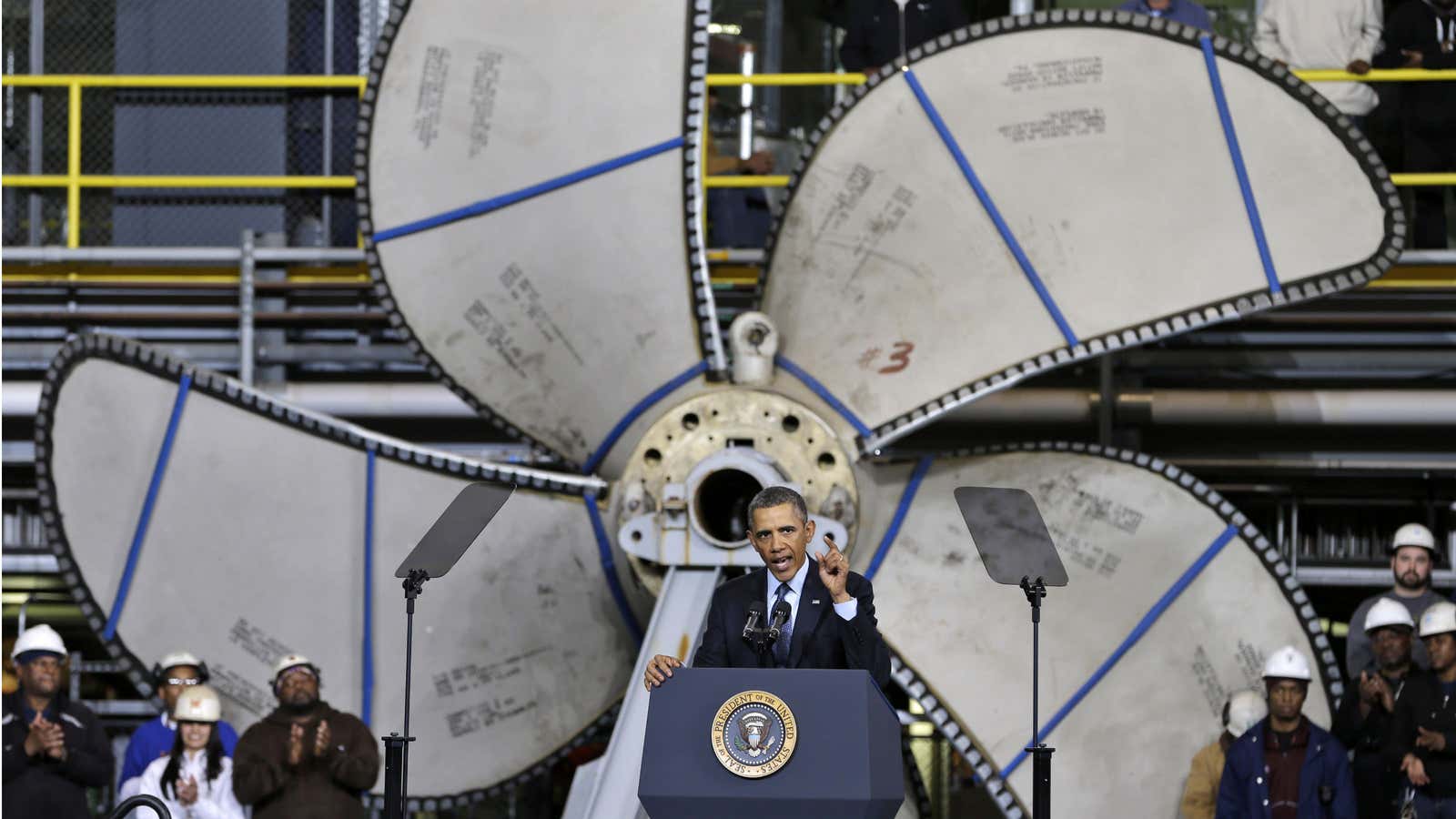Worry about a March 27 government shutdown instead.
The realization that nothing will be done to prevent $85 billion in spending cuts set to begin on March 1 could lead Americans to panic: The economy will grow more slowly, or even shrink. Public services for children and seniors will be ended. Research could be set back for a generation. Airline travel could become an even more horrendous experience, something we never thought possible.
But it’s not time to panic yet. The sequestration, designed to cut spending by $1.2 trillion over ten years, is a hangover from attempts by President Barack Obama and Republicans in Congress to agree on a budget plan. It will take several weeks before the effect of its cuts are felt in the economy. And before that happens it will be superseded by a more pressing mechanism. By March 27, legislators and the president need to agree on a spending plan for the rest of 2013, or the government will shut down.
Unlike fixing sequestration, a compromise on this is not optional, since a government shutdown would create a real crisis in Washington which could quickly spread. But to avoid the shutdown, Republicans and Democrats will have to reach a deal that, Congressional staff say, is likely to significantly alter the terms of sequestration too.
The simplest way to avoid the shutdown is to adopt last year’s spending levels, and then apply sequestration as-is, but President Obama and Senate Democrats are unlikely to take it. At the very least, Obama will want more flexibility in applying the cuts, but he’ll fight for a balanced package that includes extra revenue by closing tax loopholes, and more carefully targeted spending cuts. Republicans say they will attempt to maximize the spending cuts they can get, especially to mandatory spending on the poor, while conceding as few tax hikes as possible.
Obama’s way forward will be through Republicans in states whose economies depend on the military, like Virginia, South Carolina and Arizona. Because defense spending is a big part of sequestration’s scheduled cuts, they have an incentive to modify the sequestration. Obama visited the first state today alongside Republican representative Scott Rigell to call attention to the defense cuts, and senators from the latter two, Lindsey Graham and John McCain, are talking up ways to avoid the cuts. They will meet with Obama today, as the two parties gear up for a month of swaying public opinion to their side before the shutdown approaches.
The US is already rapidly reducing its deficit, and its fiscal situation is fairly stable in the near-term. Economists, like Federal Reserve chair Ben Bernanke, in Feb. 26 testimony to Congress, are recommending that cuts be pushed to the future while fiscal reforms focus on solving America’s first-world problems. It’s doubtful that a real program of that nature can be agreed to, but sources in the capital expect that the immediate pace of spending cuts will be slowed.
So if a compromise will be needed to avoid a shutdown, what’s to worry about? The brinksmanship, and the economic and political fall-out that might occur around it. While a shutdown isn’t as bad as, say, a debt default, it’s certainly a cause for plenty of economic anxiety.
